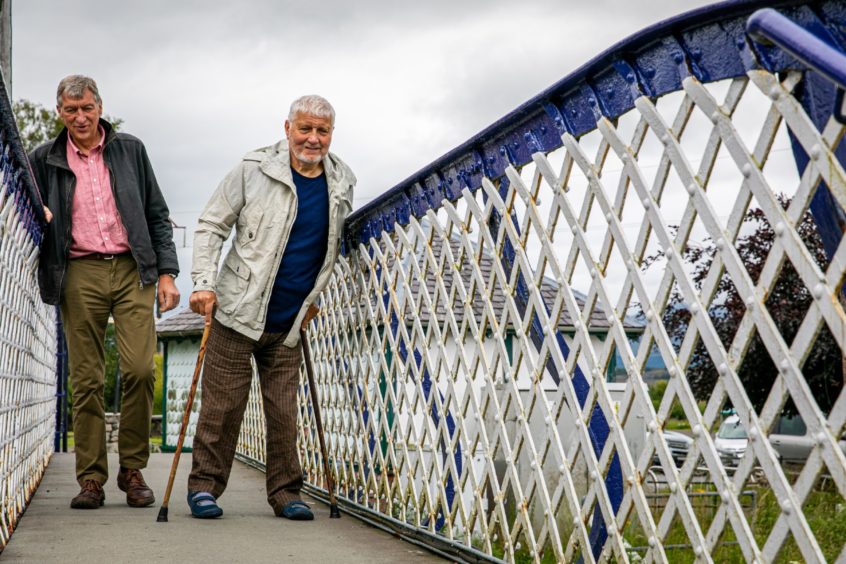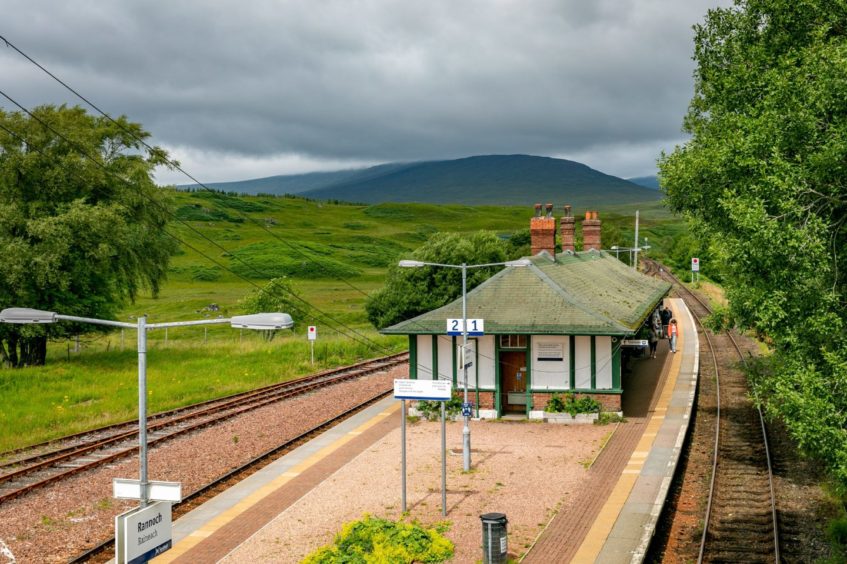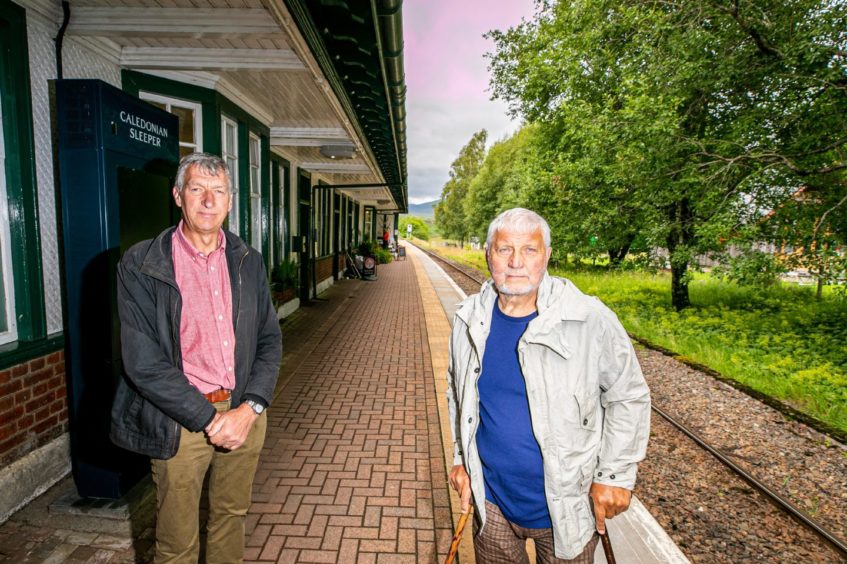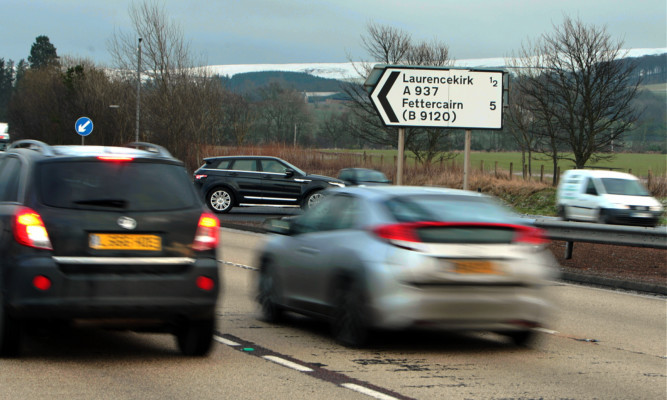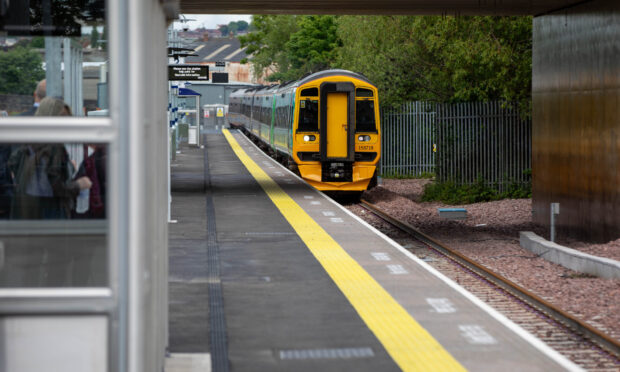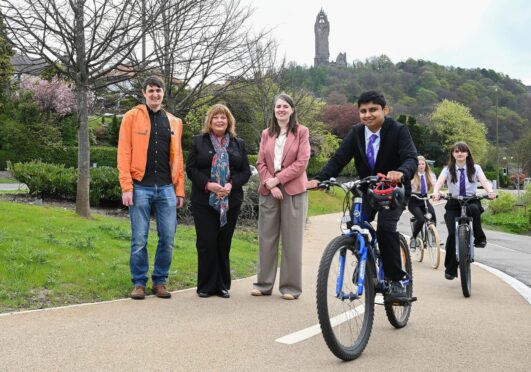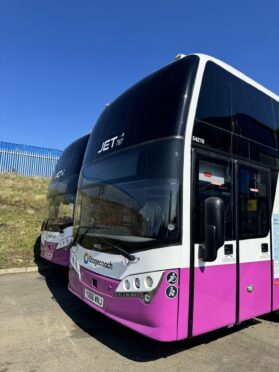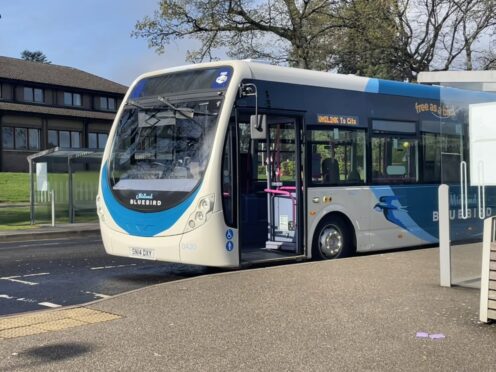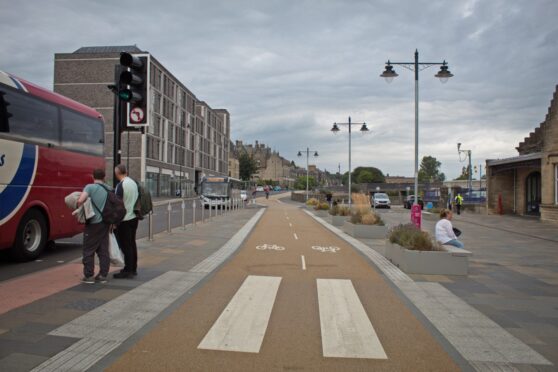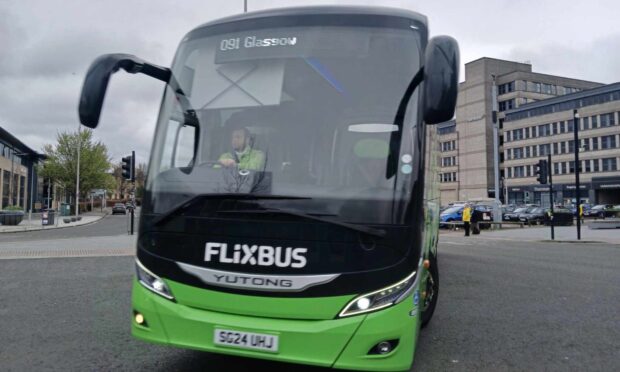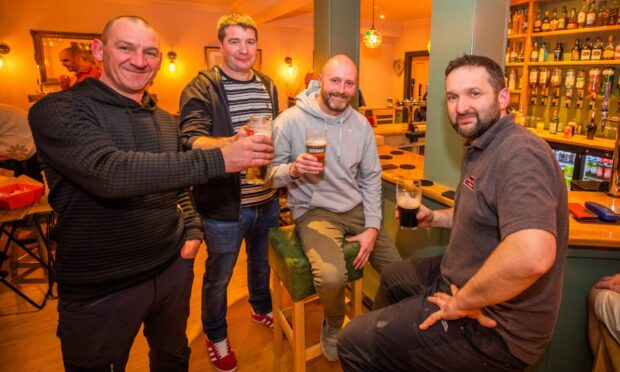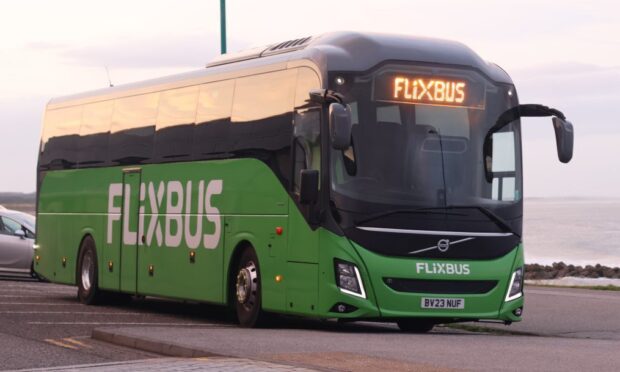A polio victim says whole families are being prevented from using Rannoch Station because of lack of disabled access.
Local resident Bob Benson, 71, has had mobility problems all his life.
Polio left him seriously ill as a tiny baby, before his first birthday.
He missed the polio vaccine by just a few years. The vaccine was first available in Scotland in 1956.
Bob moved to Loch Rannoch in 1994 but has been unable to use the station because getting to the platform involves crossing a footbridge.
He uses a disabled buggy but manages to walk small distances with the help of two sticks.
Two out of five families affected by disability
Having previously acted as Scotland director for the Disability Rights Commission, Bob is no stranger to campaigning for equality.
It is now 21 years since the Commission was established.
“Here we are 21 years later and we’re still waiting to get access to a key station on the West Highland Line,” he said.
“For train journeys, it wouldn’t be possible for me to take my disabled buggy.
“It’s a significant barrier for disabled people.
“Two out of five families have an experience of a disabled person. So if a disabled person can’t go, neither can the family.
“It’s a little understood fact about disabled people’s lives that they’re not just affected themselves, they can’t go with their family or friends.”
Will UK Government review lead to change at Rannoch?
The UK Government has announced a major audit of all UK railway stations.
This comes with the promise of better access to public transport for disabled passengers.
Is Bob confident it will lead to change at Rannoch?
He said disabled access should not be a “hope” but an “expectation”.
But he fears Rannoch’s remote location will mean it is not treated as a priority.
This is despite it being a popular destination for holidaymakers.
“One of the difficulties is that everything is measured by footfall.
“But of course if you can’t get there there won’t be any footfall to regard it as an important station.
“It’s a significant tourist line as well, for the local economy.”
Nothing a bridge too far for tearoom staff
Bob met local SNP councillor Mike Williamson at the station to discuss the issue.
Mr Williamson said Rannoch was not the only station in his ward with poor access.
He is also calling for Dunkeld to be made more disabled-friendly.
While they were there a woman in a wheelchair was served by staff from Rannoch Station Tearoom in the car park.
She had been unable to get across the bridge to the tearoom located beside the platform.
“They had to take food to her at the car park,” said Mr Williamson.
“For me this is about investment.
“Even if you have a baby buggy, or whatever, you’re going to need help to get up and down the stairs.
“Essentially there’s no disabled access to the railway station.
“There needs to be a bit more recognition of the inequality in the service that’s provided there.”
National strategy
The UK Government last week announced a raft of measures aimed at making public transport more accessible for disabled people.
As part of the National Disability Strategy, the Department for Transport unveiled plans to remove barriers to using trains, buses and taxis.
The move is aimed at boosting confidence for those affected by disability as they return to using public transport following the pandemic.
UK Government Minister for Scotland Iain Stewart said: “These UK Government-funded improvements will make a big difference to people in Scotland with mobility issues, helping them access public transport more easily.”
Network Rail was contacted but has not responded.
